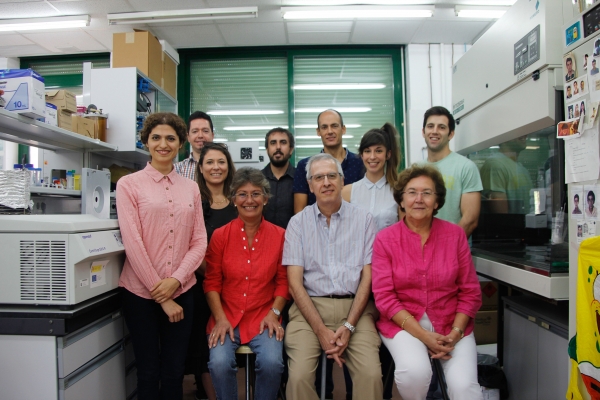There are millions of algae in the world, boasting great ecological potential yet to be fully understood In fact, almost 60% of the oxygen we breathe is produced by these living things. Despite the importance of these organisms, their diversity and applications in the field of biotechnology are yet to be discovered.
Thus, the Algared+ project, in which the University of Cordoba is participating, is exploring the properties of some of these species. Specifically, more than 100 algae from the coasts of Cádiz, Huelva and the Portuguese Algarve have been characterised in this study, financed with European funds and focused on studying added-value compounds (lipids, antimicrobial compounds, carotenes, etc ...) of these types.
This is a cross-border consortium featuring participation by three universities, two biotechnology companies and four research institutes, and in which the UCO focused on improving the compression of algae, according to Professor Emilio Fernández, director of the BIO128 group at the University of Cordoba, who, together with Professor Aurora Galván, participated in the project.
"Now it is being discovered that algae are very rich in proteins and amino acids; in many cases, even in greater amounts than plants," added Galván. Therefore, they are considered optimal for human consumption, or for use in other areas. Specifically, the University of Cordoba focused on studying Chlamydomonas, a genus of flagellated unicellular green algae, which they used as a model organism to “domesticate” it in the laboratory, as it is easy to learn from. "We use them to identify genes and metabolic pathways to obtain information when they need to be used in certain practices," explained Galván. In fact, the genome of this organism, easily cultivable in the laboratory, is known; and it has a well-studied life cycle and a broad collection of mutants with tagged genes, among other things.
Among other applications, within the framework of the project it has been found that algae can be used to purify polluted water, replacing chemicals; and, by decontaminating water in this way, biomass is also generated. Another of the consortium's objectives is, precisely, to recover and exploit this biomass to develop innovative products.
The Algared+ project - "Cross-border NETWORK for the development of innovative products with microalgae" (POCTEP-0055_ALGARED_PLUS_5_E) - was funded by the European Union through the EP - INTERREG VA Spain Portugal (POCTEP) -1 call.
"This report is part of the project “CONSOLIDA-UCO ECT2020-000810", funded by MCIN/AEI/10.13039/501100011033 and by European Union “NextGenerationEU”/PRTR”.


